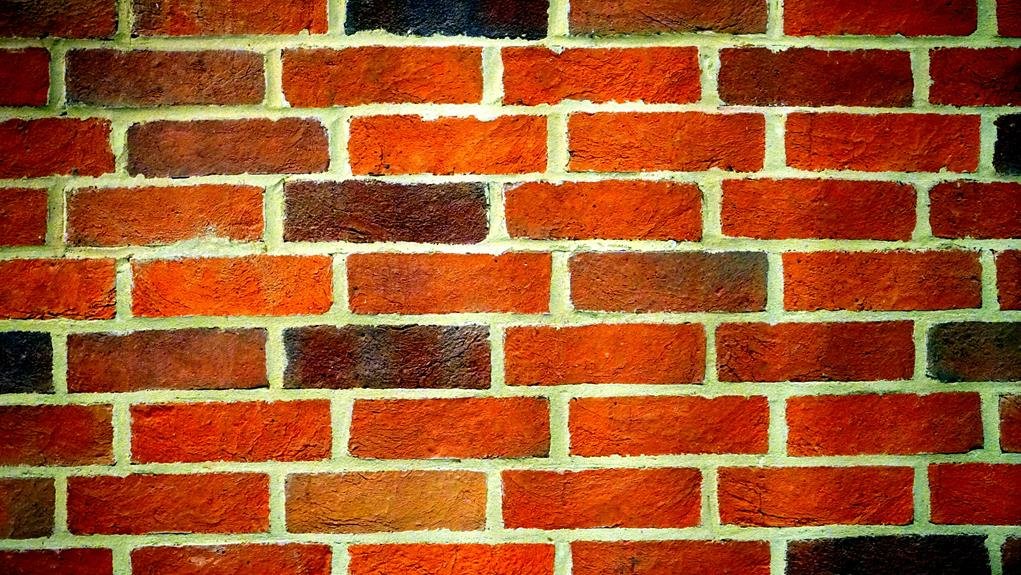In choosing between masonry adhesive and mortar, it depends on your construction needs. Adhesive, a synthetic substance, excels in quick bonding and vertical surfaces. It offers strong initial adhesion. Mortar, a cement blend, is durable, great for horizontal surfaces, and has strong long-term bonding. Adhesive is quick to apply, while mortar requires mixing, with better weather-resistance and longevity. Adhesive is cost-efficient upfront with less labor, while mortar may offer long-term savings. Adhesive boasts design versatility; mortar guarantees structure strength. Consider these aspects to make the best choice for your project's success, addressing both aesthetics and durability.
A Quick Overview
- Masonry adhesive is preferable for quick bonding on vertical surfaces.
- Mortar is known for its high load-bearing capacity and excellent impact resistance.
- Adhesive provides a strong initial bond, while mortar ensures long-term strength.
- Adhesive is more cost-efficient initially, whereas mortar offers long-lasting durability.
- When choosing between adhesive and mortar, consider factors like design flexibility and environmental impact.
Differences in Composition
When comparing masonry adhesive to mortar, one key difference lies in their composition. Masonry adhesive is a synthetic substance designed for excellent bonding capabilities, offering a strong adhesive property that bonds materials together effectively.
On the other hand, mortar is a mixture of cement, sand, and water, providing a durable bonding agent for bricks and stones.
Understanding these composition differences is essential for choosing the right material for your project.
Strength and Durability Comparison
In comparing masonry adhesive to mortar, the strength and durability of each product play a crucial role in determining their suitability for different construction projects.
Masonry adhesive typically offers fast bonding capabilities and quicker curing times, making it ideal for projects requiring speed.
On the other hand, mortar excels in load-bearing capacity and impact resistance, making it a reliable choice for structures that need to withstand heavy loads and harsh conditions.
Application Process Variations
Considering the differences between masonry adhesive and mortar, understanding their application process variations can greatly impact the outcome of your construction project.
- Application Techniques:
- Adhesive: Simple and quick, suitable for vertical surfaces.
- Mortar: Requires mixing, suitable for horizontal applications.
- Bonding Strength:
- Adhesive: Strong initial bond.
- Mortar: Strong bond over time, especially for load-bearing structures.
Weather Resistance and Longevity
For maximum durability in varying weather conditions and long-term structural integrity, understanding how masonry adhesive and mortar differ in their weather resistance and longevity is essential.
Weather resistance testing reveals that masonry adhesive typically offers better protection against the elements compared to mortar.
However, when it comes to longevity comparison, mortar tends to have a longer lifespan due to its composition and bonding capabilities with masonry units.
Cost Analysis and Budget Considerations
To evaluate cost-effectiveness and budget implications, compare the expenses associated with using masonry adhesive versus mortar in your construction projects.
- Cost efficiency: Masonry adhesive tends to be more cost-effective initially.
- Material lifespan: Mortar typically offers greater longevity.
- Installation labor: Adhesive requires less labor for installation.
- Long term savings: Mortar may provide savings over time due to its durability.
Flexibility in Design and Aesthetics
When designing your project, explore how masonry adhesive and mortar differ in providing flexibility and enhancing aesthetics.
Masonry adhesive offers increased design versatility, allowing for more intricate patterns and shapes due to its ability to bond various materials.
On the other hand, mortar provides excellent structural integrity, ensuring long-lasting and durable constructions.
Consider these factors carefully to achieve the desired look and durability for your project.
Environmental Impact Assessment
Considering the environmental impact is essential when comparing masonry adhesive and mortar for your project. Here are some key points to help you make an informed decision:
- Conduct a carbon footprint analysis to understand the environmental impact.
- Incorporate sustainability practices into your construction methods.
- Choose materials that prioritize energy efficiency.
- Explore eco-friendly alternatives to minimize harm to the environment.
Maintenance and Repair Considerations
Evaluating the long-term maintenance requirements is vital when examining masonry adhesive and mortar for your project. Application techniques play a significant role in determining the longevity and durability of the bond. Properly selecting bonding agents and understanding their impact on repairs can save you time and effort in the future.
Consider these factors to guarantee that your masonry work remains sturdy and reliable over time.
Frequently Asked Questions
Can Masonry Adhesive Be Used Interchangeably With Mortar?
Yes, you can use masonry adhesive as a substitute for mortar in some cases. Adhesive offers strong bonding strength and weather resistance but lacks the flexibility of mortar. Consider drying time and project needs when deciding.
What Are the Recommended Curing Times for Each Material?
For masonry adhesive, curing times vary but generally allow 24 hours for initial set and 7 days for full strength. Mortar typically needs 36-48 hours to cure. Both have benefits; adhesive is quicker, while mortar offers stronger bonds.
Are There Specific Types of Projects Better Suited for Adhesive or Mortar?
For specific projects, adhesive strength shines in quick fixes and vertical applications. Mortar's durability and versatility make it ideal for heavy load-bearing structures and outdoor projects. Choose based on your needs, both have their strengths.
How Do Adhesive and Mortar Differ in Terms of Ease of Cleanup?
When it comes to ease of removal, adhesive tends to be simpler to clean up compared to mortar. Adhesive is often more compatible with paint, offering you the freedom to customize your masonry projects with ease.
Can Masonry Adhesive or Mortar Be Used for Vertical Applications?
For vertical applications, both masonry adhesive and mortar can be used. Adhesive offers quick application and strong bond. Mortar provides excellent vertical stability and weather resistance. Choose based on bond strength needed and application technique preferred.


